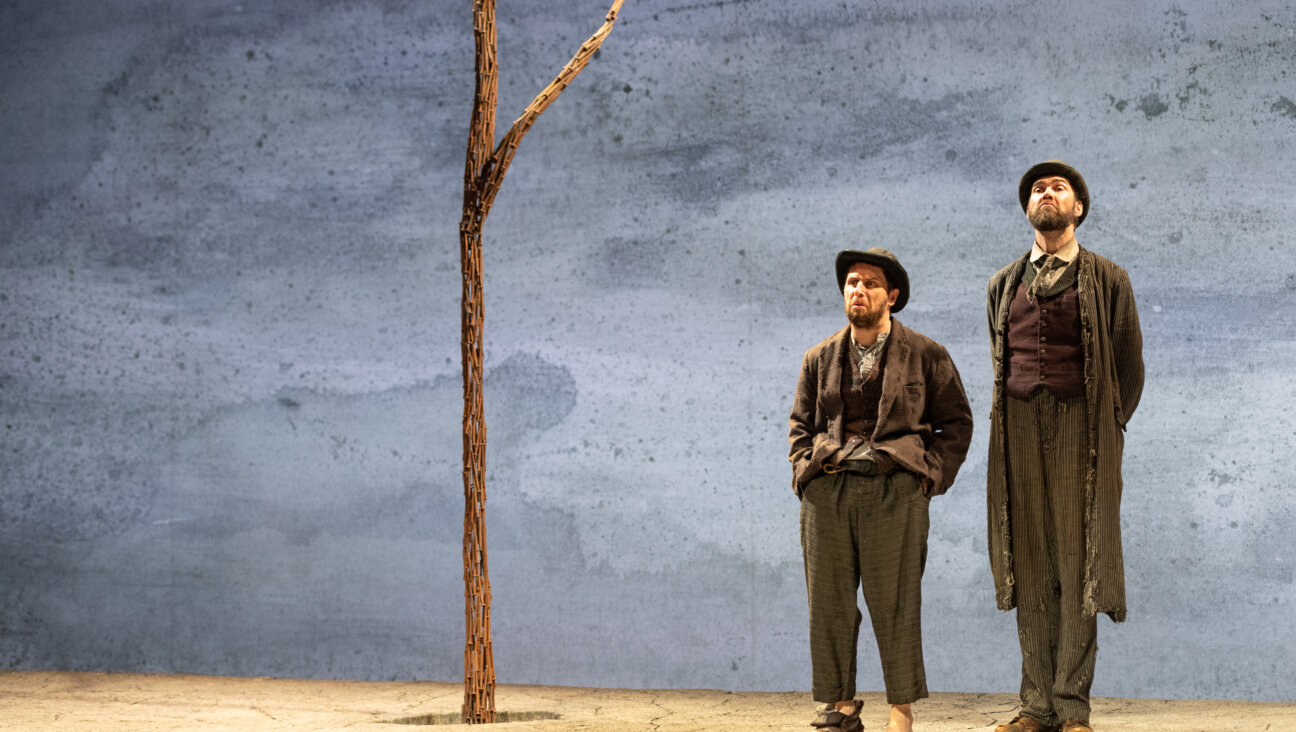Trying To Make Sephardic Music as Hip as Klezmer
Benjamin Cardozo was one. So was Benjamin Disraeli. Some believe that FDR may have been one, at least on his mother’s side. Camille Pissarro, Harold Pinter, Murray Perahia… Sephardic Jews, every one.
And yet, despite their notable achievements throughout the Diaspora, Sephardim have been noticeably absent from the North American Jewish music scene. (In Israel, where Sephardic Jews represent a much larger portion of the population, the situation is far different.) Until recently, you’d have been lucky to find even one Sephardic ensemble for every 10 nouveau klezmer bands on the Jewish music circuit.
But that appears to be changing, thanks to the efforts of people like Erez Shudnow, aka DJ Handler. A turntablist who samples everything from Brazilian baile funk to Yemenite songs and Ashkenazic cantillation, Handler also plays drums with Orthodox avant-klezmer outfit Juez and runs both a music label and a production company. In addition, he’s the driving force behind New York’s first Sephardic Music Festival, scheduled to run during the eight nights of Hanukkah at venues ranging from Mo Pitkin’s to Makor.
Although the term “Sephardic” is often used as a catchall for anyone who isn’t of Ashkenazic descent, it properly denotes those Jews whose origins lie in Spain and Portugal. Following the expulsion of the Jews from the Iberian Peninsula in 1492, the Sephardim were dispersed throughout North Africa and the Mediterranean, where they continued to speak the various Judaeo-Spanish dialects that had evolved under Moorish influence. They also retained, and continued to develop, their own distinctive cultural practices — including their music, which bears the imprint not only of their earliest surroundings but also of the lands (Greece, Turkey, Morocco) in which they settled. The texts of many traditional Sephardic songs, for example, are cast in Hispanic poetic forms, while Sephardic melodies are often cast in Arabic modes.
While the Sephardic Music Festival will include traditional Sephardic acts like Joe Elias and his Ladino Ensemble, the emphasis will be on contemporary music, from the Sephardic jazz engineered by Anthony Coleman and Uri Caine to the various brands of Sephardic pop and rock performed by Sarah Aroeste, Raquy and the Cavemen, and Pharaoh’s Daughter. There will even be some Mizrahic sounds on offer, most notably from Divahn, an all-female acoustic Sephardic-Mizrahic quartet led by the musician and anthropologist Galeet Dardashti. (Though often lumped together with Sephardim, Mizrahim are in fact a group unto themselves — namely, Middle Eastern and North African Jews who did not make a pit stop in Iberia.) There will also be plenty of hip-hop and dance beats served up by rappers and spinners like Y-Love, Jake Break and Handler himself, all of whom will appear on Israeli Hip Hop Night.
“DJs can do things that musicians can’t,” Handler told the Forward in an interview. A DJ armed with a pile of samples “can introduce things in sort of covert ways,” Handler explained. “You could be playing a hip-hop track and suddenly be playing an Israeli track, and people wouldn’t even know how they got there. As a DJ, you can introduce people to a different culture without losing them.”
One of the central goals of the festival is to increase awareness of Sephardic music among younger audiences, and to make it as hip — and as popular — as modern klezmer. Aroeste, a singer whose grandparents immigrated to America from Salonika, Greece, was herself inspired to form a contemporary Sephardic ensemble after meeting Frank London, one of the leaders of the progressive klezmer movement. Though she studied traditional Sephardic song in Israel, her principle goal is to render the Sephardic tradition more relevant to her own peer group. “I grew up in America, and I’m a young, modern American woman. I love the traditional style, but it’s not necessarily what I feel in my own being,” she told the Forward. “I still make traditional music, but I make it new.” To that end, Aroeste sets a variety of lyrics — some deriving from traditional Hispanic narrative ballads, others of her own design — to pop and rock grooves, while continuing to use traditional Sephardic instruments like hand drums and the ubiquitous Middle Eastern lute known as the oud.
Aroeste sees several reasons for the relatively low profile of Sephardic music in North America, from the insularity of Sephardic communities themselves (“We share our music with each other, but not necessarily with the larger [Jewish] community,” she said) to the overall lack of Sephardic content in Jewish education. Certainly, Israeli children are far more likely to hear Sephardic or Mizrahic music than kids in the Diaspora — “America is located half a globe away from the Middle East, and most of the Sephardic music is happening in synagogues and [local] communities,” said New York-based, Israeli-born percussionist Tomer Tzur — and that’s unlikely to change overnight. But thanks to events like the Sephardic Music Festival, the sounds of Sephardic Jewry are at last beginning to get their due. “Our music,” Aroeste said, “is starting to get on the radar screen.”
Alexander Gelfand is a writer living in New York.

I hope you appreciated this article. Before you go, I’d like to ask you to please support the Forward’s award-winning journalism this Passover.
In this age of misinformation, our work is needed like never before. We report on the news that matters most to American Jews, driven by truth, not ideology.
At a time when newsrooms are closing or cutting back, the Forward has removed its paywall. That means for the first time in our 126-year history, Forward journalism is free to everyone, everywhere. With an ongoing war, rising antisemitism, and a flood of disinformation that may affect the upcoming election, we believe that free and open access to Jewish journalism is imperative.
Readers like you make it all possible. Right now, we’re in the middle of our Passover Pledge Drive and we need 500 people to step up and make a gift to sustain our trustworthy, independent journalism.
Make a gift of any size and become a Forward member today. You’ll support our mission to tell the American Jewish story fully and fairly.
— Rachel Fishman Feddersen, Publisher and CEO
Join our mission to tell the Jewish story fully and fairly.
Our Goal: 500 gifts during our Passover Pledge Drive!
























